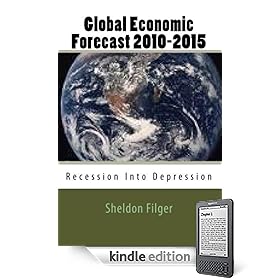Former Fed Chairman Paul Volcker Urgently Warns Against “Planned” Inflation
In an Op-Ed piece in The New York Times, Paul Volcker, chairman of the Federal Reserve during 1979- 1987, issued an eloquent warning against economic policymakers deliberately increasing the inflation rate as a way of dealing with escalating economic and fiscal problems that have defied all other policy measures. Volcker’s Op-Ed, entitled, “A Little Inflation Can Be a Dangerous Thing,” warrants serious reading by all concerned with the global economic crisis. Paul Volcker knows what he is talking about; it was he as Fed Chairman during the Reagan administration who squeezed high inflation out of the U.S. economy through a draconian process of high interest rates.
Here are extracts of what Volcker wrote in his Op-Ed piece:
“There is great and understandable disappointment about high unemployment and the absence of a robust economy, and even concern about the possibility of a renewed downturn. There is also a sense of desperation that both monetary and fiscal policy have almost exhausted their potential, given the size of the fiscal deficits and the already extremely low level of interest rates.
“So now we are beginning to hear murmurings about the possible invigorating effects of ‘just a little inflation.’ Perhaps 4 or 5 percent a year would be just the thing to deal with the overhang of debt and encourage the ‘animal spirits’ of business, or so the argument goes… Some mathematical models spawned in academic seminars might support this scenario. But all of our economic history says it won’t work that way. I thought we learned that lesson in the 1970s. That’s when the word stagflation was invented to describe a truly ugly combination of rising inflation and stunted growth… At a time when foreign countries own trillions of our dollars, when we are dependent on borrowing still more abroad, and when the whole world counts on the dollar’s maintaining its purchasing power, taking on the risks of deliberately promoting inflation would be simply irresponsible.”
In particular, due to the global sovereign debt crisis, economists and policymakers are discussing behind closed doors the desirability of a 5-6 percent annual inflation rate as a way of reducing the burden of national debts in advanced economies. As if the experience of Weimar Germany and Zimbabwe wasn’t enough to show the irrationality of such an approach, Paul Volcker again reminds us of the futility of engineering deliberate inflation as a policy “cure” for our economic woes. One can only hope that the former Fed Chairman’s clear warning is heeded.


